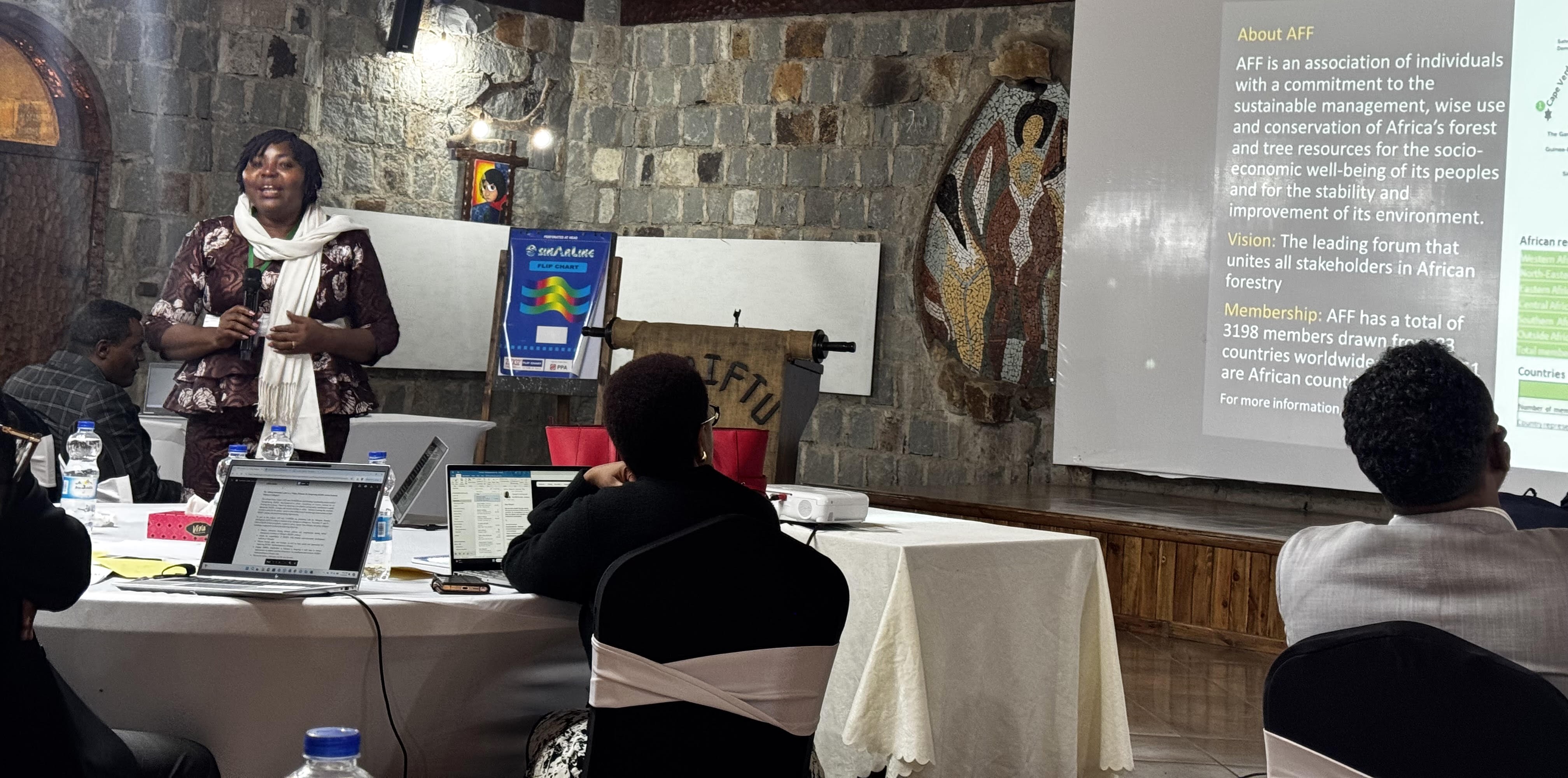Delegates pose for a group photo outside the event venue
Stronger action to tackle illegal logging and financial incentives for farmers were among the key measures put forward by Ethiopian government, business and civil society leaders at a national policy meeting this month on how best to aid sustainable development and reduce deforestation.
About 25 delegates from sectors including agriculture, energy, water, biodiversity, finance, livestock, mining and wildlife attended a National Policy Dialogue in Bishoftu, Ethiopia from 4-6 November to discuss how the country’s Reducing Emissions from Deforestation and Forest Degradation (REDD+) plans can achieve their full potential.
To help align its REDD+ strategy with other country policies and strategies, Ethiopia is receiving support from the African Forestry Forum (AFF) in partnership with UN-REDD Programme.
Stakeholders who attended the event, which included leaders from the national REDD+ secretariat, agreed that a multi-sector approach was key – ensuring all actors are involved at every level of the REDD+ process.
Ethiopian Forestry Development Deputy Director, Dr. Motuma Tolera opened the event by urging all sectors to work together to best support forest conservation and management – emphasizing this as a key pillar for achieving sustainable development.
Other important issues discussed by delegates during the dialogue included:
- The lack of strong enforcement mechanisms for preventing illegal logging and deforestation, which REDD+ depends on.
- The need for clearer incentives to promote private sector involvement in sustainable forestry.
- The introduction of economic incentives - such as tax breaks and subsidies - for sectors like agriculture and energy to promote the adoption of forest-friendly practices.
- Improving cross-sectoral coordination to ensure alignment between agriculture, forestry, energy, and rural development policies.
- Increasing awareness of REDD+ benefits across sectors, as well as capacity building.
- Improving awareness among policymakers and stakeholders on the value of forests for carbon sequestration.
As one of several the countries backing REDD+ in Africa, Ethiopia signed a USD 75 million deal with Norway, early 2025. This funding will enable Ethiopia to continue investing in the management and conservation of standing forests and restoration of degraded landscapes. Additionally, Ethiopia has received USD 40 million from Norway and the Danish Government to support REDD+ implementation for the period, 2022-2026.
With this financial support, Ethiopia is looking to transition to the results-based payment phase from 2026 with the aid of an already established benefit sharing plan that will see forest communities receive 75 per cent of future payments.
Speaking at the National Policy Dialogue, AFF Senior Programme Officer Prof. Marie Louise Avana reiterated the importance of greater dialogue between stakeholders, adding that it would propel the country to receive further results-based payments.

AFF Senior Programme Officer Prof. Marie Louise Avana addressing the delegates
UN-REDD-AFF Project Coordinator Achille Momo agreed, adding that UN-REDD would provide stakeholders with technical support to further identify and drive reforms in policies, regulations and institutional arrangements aimed at improving Ethiopia’s REDD+ implementation.
Additional key outcomes of the dialogue included:
- Key policy actors were made aware of sectoral policies and strategies that have the potential to influence REDD+ implementation at a national level.
- Policymakers in Ethiopia were better informed on the existing opportunities for mainstreaming and integrating REDD+ activities across relevant sectoral policies to contribute to the country’s sustainable development drive.
- Ethiopian policy actors informed and understood potential disincentives and constraints at policy and institutional levels, that could negatively affect REDD+ process.
As a way forward, a road map was developed with roles, responsibilities, and a timeline for each REDD+ stakeholder for achieving the REDD+ coordination and integration, building on agreed recommendations for harnessing identified opportunities and addressing the constraints.



